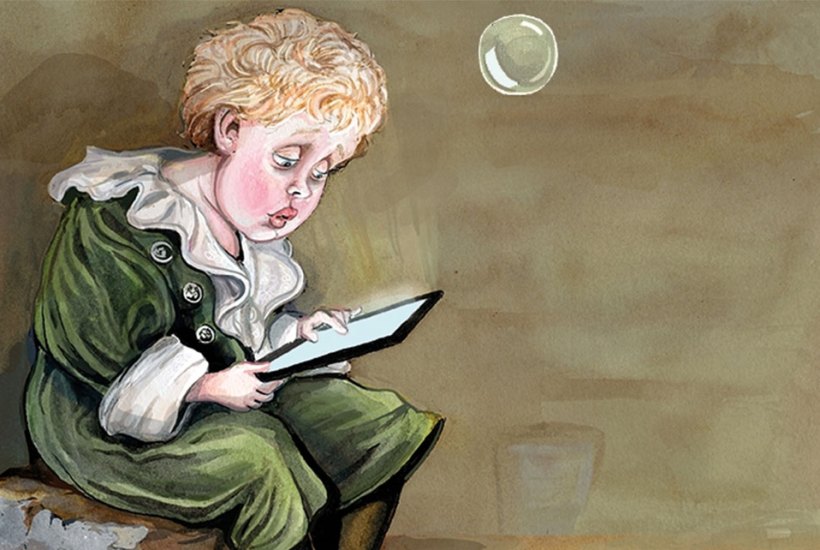I understand the allure of smartphones, if you’re the parent of an adolescent (or younger) moron – which I believe many of you are.
You have booked a nice table for Sunday lunch and would appreciate not having to engage your offspring in a dialogue of inanities regarding the things which most concern them at the present time: the wickedness of Great Britain, historically and indeed today; the wickedness of the generation which brought them into the world; their debilitating and unsightly skin issues; their plans for transitioning; their fear that by the time they are 20 they will not be...
Already a subscriber? Log in
Subscribe for just $2 a week
Try a month of The Spectator Australia absolutely free and without commitment. Not only that but – if you choose to continue – you’ll pay just $2 a week for your first year.
- Unlimited access to spectator.com.au and app
- The weekly edition on the Spectator Australia app
- Spectator podcasts and newsletters
- Full access to spectator.co.uk
Unlock this article
You might disagree with half of it, but you’ll enjoy reading all of it. Try your first month for free, then just $2 a week for the remainder of your first year.









Comments
Don't miss out
Join the conversation with other Spectator Australia readers. Subscribe to leave a comment.
SUBSCRIBEAlready a subscriber? Log in